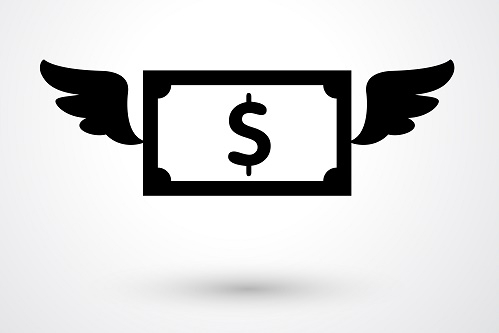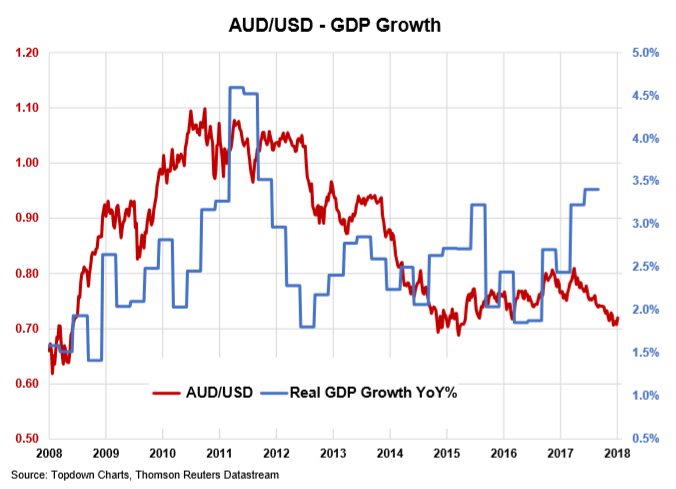
By Roger J Kerr*

The Kiwi dollar has staged a sudden and dramatic recovery upwards against the US dollar over the last week, appreciating in a straight line upwards from 0.6500 to highs of 0.6790 on 8th November. It should be of no surprise to readers of this column that the turnaround in fortunes for the currency has occurred, largely due to the heavily over-sold nature of the Kiwi dollar in terms of speculative positioning.
Once the key resistance point of 0.6600 was breached on the upswing, the Kiwi was always going to climb rapidly as the “short-sold NZD” punters reversed their positions.
The buying demand of the Kiwi dollar has not been sparked by one single factor, as with most things in life, it takes a combination of variables to occur and feed on each other to cause a change in sentiment and direction: -
- Escalating trade war tensions between the US and the rest of the world (mainly China) have been a negative weight on the Kiwi dollar over recent months. However, recent developments have reduced the risk somewhat with the Chinese hinting that they may be prepared to compromise on some of President Trump’s demands. Likewise, Donald Trump himself may be forced to dial back the trade/tariff attack as he realises that it hurts profitability of US businesses and he will not be able to push through tax cuts for the middle-classes now that the Democrats control the House of Representatives. Trump’s triumph is the well performing US economy and he needs to see that continuing to be re-elected in 2020. The financial and investment markets picked the mid-term election results pretty well and some confidence has returned to equity markets following the October rout. The more positive markets are reflecting the ending of uncertainty and the potential for reduced trade tensions going forward. All good news for the Kiwi dollar. The G-20 meeting later this month between President Trump and Premier Xi Jinping will be the next focus point for the financial and investment markets. Some broad agreements to progress a resolution of the trade spat will be helpful to the Kiwi dollar.
- Stronger NZ employment data for the September quarter released on 7th November certainly boosted the Kiwi higher as it came on top of much stronger than forecast GDP growth and inflation data over recent weeks. Jobs growth was stronger and the unemployment rate lower than expected, however it should always be remembered the employment data typically lags other economic measures by six to 12 months. The stronger data remains at odds with the very low business confidence levels. However, expect to see the business confidence improve over coming months as business firms finally realise that the world has not come to an end just because there are uncertainties over the future employment and tax landscape. It will be positive for the Kiwi dollar when business confidence starts to lift again.
- The risk that the Kiwi could have been sold off again on another dovish RBNZ Monetary Policy Statement dissipated on Thursday 8th November when they delivered very subtle changes in the messaging and dropped the previous “next move in the OCR could equally be up or down” wording. Governor Orr is now more prudently pointing to “economic data dependent” as the trigger for the next interest rate adjustment. There was a greater emphasis on alternative scenarios for the economy and inflation in the statement. The RBNZ covering their backsides in case fuel price increases do feed into wider “second round” general price increases over coming months. The Kiwi dollar did not react to the statement as most of the buying had already taken place beforehand by those that believed the RBNZ would quietly move away from the previous overtly dovish tone. The RBNZ delivered to that expectation.
The Kiwi dollar has out-performed the major currencies against the USD over this last week, pushing all the cross-rates to the AUD, EUR, JPY, CNY and GBP sharply upwards. The out-performance reflects the reversal of its previously over-sold level against the USD vis-à-vis the major currencies. The initial global FX market reaction to the US mid-term election outcome was to sell the USD against the Euro, however the small USD losses have already reversed back again. NZ dollar gains to above 0.9300 on the NZD/AUD cross-rate do not seem sustainable and a return to the 0.9200 area is forecast. Employment, wages and business/consumer data on the Aussie economy being released over this coming week should be positive for the AUD in its own right. The Aussie dollar still appears to be over-sold at 0.7250 against the USD, given its current positive economic growth above 3% story.
Now that the NZD/USD exchange rate has broken out of its downtrend from 0.7400 in April, expect to see further unwinding of speculative “short-sold” positions and thus further NZD gains over coming weeks to 0.6800 and 0.6900. A recovery in whole milk powder commodity prices back to nearer US$3,000/MT (due to weaker supply out of Australia and Europe) by year-end may well be one driver that underpins the Kiwi dollar to those levels.

Daily exchange rates
Select chart tabs
*Roger J Kerr is an independent treasury Management advisor. He has written commentaries on the NZ Dollar since 1981.
5 Comments
Roger Kerr loves NZD so hard
Whats your prediction ?, I locked in some rates this morning on the x with the aussie, all win for me.
What we saw was a short squeeze - now to continue upwards why would foreign investors purchase Kiwi $?
As an example, recently I put some USD in an ANZ term deposit for 60 days and I received a rate of 2.11%. ANZ term deposit rate for 60 days for NZ Dollars = 1.50%.
For 90 days its 2.31% vs. 2.65% - remembering these rates are before the Feb has its meeting in December where it is expected to increase rates by a further 25bps.
So now I can carry/receive similar rates for a currency that is based upon 320 Million people, with a Feb that has a bias on hiking rates vs. on hold and that probably is 20 off % of global GDP.
Or I could convert that USD into Kiwi and gain exposure to a economy of 4.5 million, with the RBNZ on hold until 2020 and whose main expect product is down 15% this year - and not least which has major exposure if the trade war gets hotter and you only have to look at Pete Navarro's comments from Friday to see that it does not look likely for peace to break out any time soon.
So the Kiwi could get up to 68/69 if the squeeze continues - however longer term why would you purchase the currency? Unless the RBNZ comes in and starts hiking rates because of inflation (checked out Oil lately?) - I don't see any underlying reason that you would bid the currency.
Nice analysis Grant, especially if the US is really trying to break China, like they broke the USSR and Japan in the late eighties/early nineties. I think this is probably the intent of US foreign policy, that has not changed with the president, merely the style of presentation. The US has China over a barrel at the moment, basically China desperately needs trade, for the US it is optional. The US controls the money supply, and whoever controls the world money supply controls the world.
"Let me issue and control a nation's money and I care not who writes the laws". Mayer Amschel Rothschild.
Yes the NZD has taken a short lived spike from a bit speculative hype but all fundamentals factors point to a decreasing NZD due to an increasing USD. As people lose confidence in markets world wide they will put there money into the perceived safest currency, USD. Like Grant previously stated it also happens to have far better returns with less volatility/risk. Ignore the minor bumps in the trend lines and look at the reasons why the dollar loses or gains strength.

We welcome your comments below. If you are not already registered, please register to comment
Remember we welcome robust, respectful and insightful debate. We don't welcome abusive or defamatory comments and will de-register those repeatedly making such comments. Our current comment policy is here.